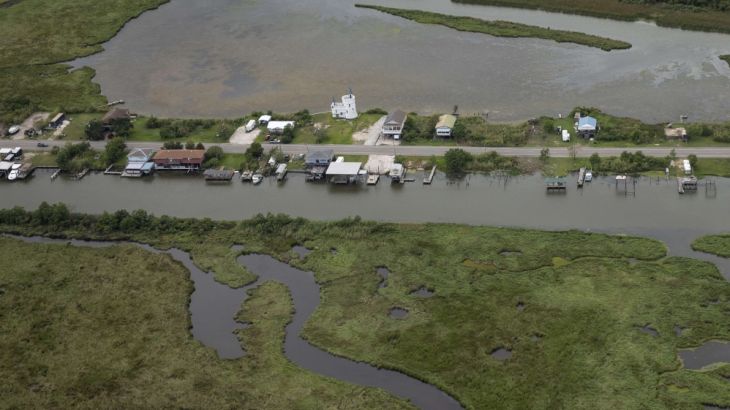
Losing Louisiana: Life in the Disappearing Mississippi Delta
Mississippi Delta’s wetlands are vanishing under rising seas, forcing people to leave their homes for drier ground.
Every year, communities on the Gulf of Mexico risk being swept away by the elements.
In 2005, the US state of Louisiana was devastated by Hurricane Katrina, a Category 5 storm which breached levies and flooded the city of New Orleans. In July 2019, tropical storm Hurricane Barry again forced thousands to evacuate as heavy rainfall brought widespread flooding.
Keep reading
list of 4 itemsLost Futures
Photos: Greek valley that became a lake stirs drought debate
Botswana threatens to send 20,000 elephants to Germany
But hurricanes are not the only problem Louisiana is facing. It has been losing land to the Gulf of Mexico at an alarming rate, caused in part by oil exploration and made worse by rising sea levels from climate change.
It has threatened the unique and ancient way of life on the bayous as those communities now face the prospect of having to relocate to higher ground.
In 2009, we visited the wetlands of the Mississippi Delta, where Cajun people had lived on the land for generations and were struggling to keep up with change. As marshlands were turned into open water, communities were retreating inland, pushed back by the waters that were once their lifeblood.
Those in the shrimping business also suffered as salt water infiltrated the delicate wetlands and less freshwater was available to grow shrimp. That, combined with competition from foreign companies, meant that they had to work hard for less profit.
Windell Curole, the general manager of the South Lafourche Levee District, described how there was precious little time to save communities.
“It’s not only losing the future, it’s losing the past,” he said.
Ten years on, Rewind returns to southern Louisiana to revisit Curole and others still battling climate change.
Curole takes us to a dock where nearby a cemetery and marshes once stood. Now, there is just open water.
He says that only six people remain in the community, down from the roughly 30 residents 10 years ago.
We also visit Phyllis Melancon, whose family has fished in the area for generations.
“Other areas do things and they are preserving their land and here it’s not. There is no future, no more future for residents. I don’t know, it hurts. It hurts to know that you have to move,” she says.